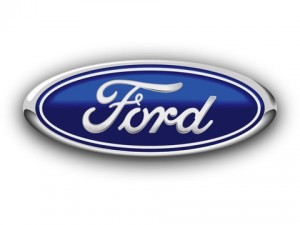
While strikes against the so-called Big 3 U.S. automakers, GM, Chrysler and Ford, are nothing new, this year is the first where the union’s and the federal government have a huge financial stake in two of the three.
It turns out that Ford, the lone U.S. automaker which said no to accepting a government bailout, is the only U.S. automaker that the UAW can strike under the bailout agreement.
Of course, with significant equity stakes in both companies, does anyone really think that the UAW would strike themselves at either Chrysler or GM?
Imagine how those negotiations are going. I wonder if they even bother to have them at a neutral site, or if they just exchange contract revisions using the Microsoft Word track changes function on the UAW internal e-mail system.
Just a couple of months ago, the UAW announced with great fanfare that they would be negotiating simultaneously with all three of the U.S. manufacturers at once rather than targeting one and attempting to work a master agreement with that company which could be translated to the other manufacturers.
So, Ford executives now get to sit down with an old nemesis in UAW President Bob King, and hear how the other two companies have already agreed to various profit sharing schemes tied to good attendance among other rumored demands. Talk about a rigged game.
Although nothing should shock anymore, the UAW is using Ford’s profitability as one of the reasons why they should be targeted for a potential strike. The only U.S. auto company that wasn’t in bankruptcy is now being targeted by the main beneficiaries of the bankruptcy of its two U.S. competitors, because Ford actually makes cars that people want at a price they can afford.
The inherent conflicts of interest raised by the government ownership of GM is nothing new, as questions were raised about the legitimacy of the National Highway Safety Administration’s initial investigation and rush to judgment against Toyota last year in the “rapid acceleration” case. A case that later was proven to be false and largely driven by trial lawyers looking for a big class action lawsuit.
Now, we have an even graver conflict of interest as Ford is targeted by a union which has an ownership interest in their competitors.
As the UAW presses Ford for more and more concessions in the weeks ahead, they should take note of Honda’s decision to invest $800 million in a new North American manufacturing facility in Mexico. It seems that Honda’s experience dealing with the UAW when they built a factory in Anderson, Indiana in 2007 soured them so thoroughly that they decided that it made more sense to pay off the drug cartels of Mexico rather than deal with the auto worker union.
If the UAW isn’t careful, Ford might have a better idea and build new plants in Mexico as well. At least in Mexico, Ford won’t be negotiating with a union with a vested interest that they lose market share to their competitors.
Rick Manning is the Director of Communications for Americans for Limited Government. You can follow Rick on Twitter at @RManning957.






